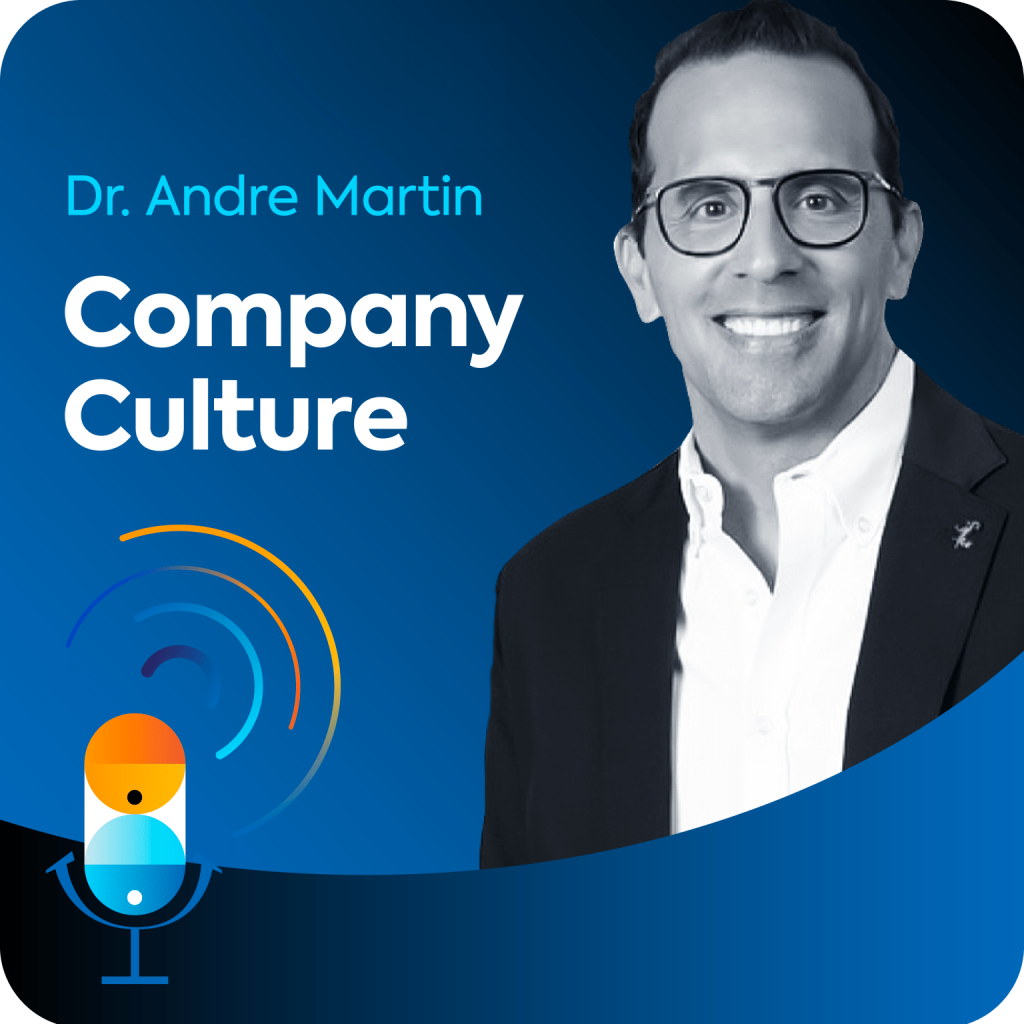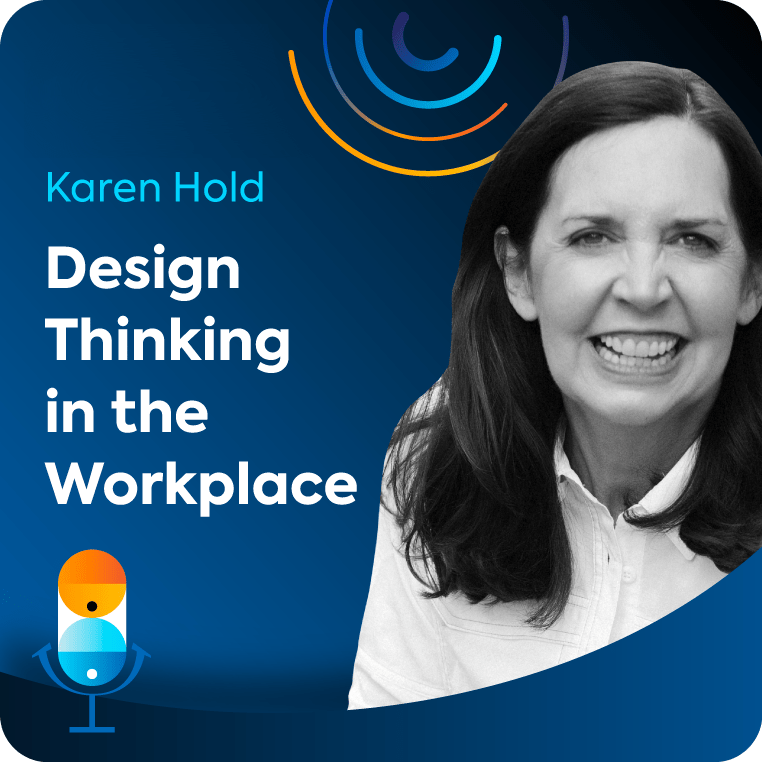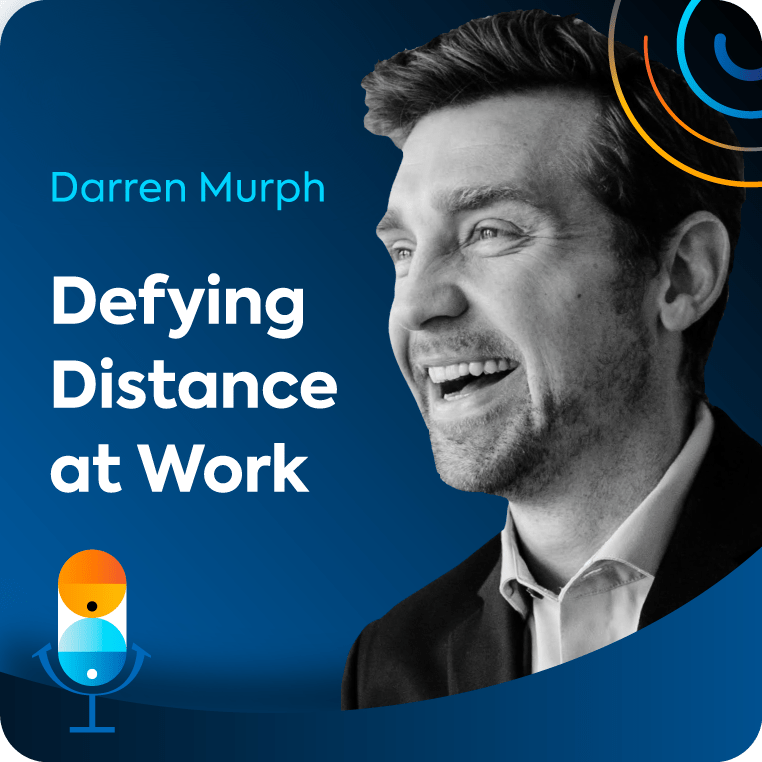Episode 5: Navigating non-linear career paths
Duration: 34min
About our guest:

Rusty Rueff
A well-known technology executive, startup advisor and thought leader, Rusty has served on numerous corporate boards of directors, including as a founding board director of Glassdoor.
He was the National Coordinating Co-Chair for Technology during Barack Obama’s successful 2012 reelection campaign and was subsequently appointed to the President’s Advisory Board for the Arts for The Kennedy Center. He has been the leader of both the GRAMMY Foundation Board and The American Conservatory Theater (A.C.T.) Board. Rusty is also the author of Talent Force: New Manifesto For The Human Side Of Business.
Share episode
What can a jack of many trades bring to the table? Join us as we explore why ‘squiggly line’ careers are great news for both employees and employers.
Alongside Rusty Rueff, who boasts experience under Obama, at Pepsi-Co, and as Glassdoor Board Director, we’re explaining what companies stand to gain from letting employees grow in a non-linear direction, instead of simply waving goodbye. Plus: Why matching skills to roles, not past job titles, is your best hiring strategy.
Key takeaways:
Great managers are considered work architects. They need to step back and look at the bigger picture of how different parts of the business fit together. There’s great importance in considering how these different business areas interact, especially when starting something new. The goal is to strategically figure out what skills are needed, who should be involved, and how to manage it effectively.
Non-linear career paths can lead to diversity in the workspace. Employers should consider skills, experience, and the actual demands of the job. Not relying solely on formal education as a decisive factor. Hiring people with advanced degrees doesn’t necessarily result in more challenging or complex work.
Adaptability, open-mindedness, proactive thinking, and problem-solving are key soft skills for managers. But what’s most important is having managers who want to take initiative and change things
AI helps minimize the time spent on first-draft work. It allows people to become more productive. However, second draft work must be done by people, as AI doesn’t understand context yet. In hiring, for example, it’s useful with first-draft assessment. But in the decision making process it’s essential to pay attention to context and the human part. Meaning, talking to candidates and hearing what they have to say first, before making a decision.
More episodes we think you’ll love

January 31, 2024 • 38 min.
•
People Management | Learning & Development
Defining & Decoding Company Culture
What is company culture? Is it ping-pong tables and perks? Is it the values we talk about internally? Or is it the way the company works “on a random Tuesday in October”? With experience at Disney, Nike, and Google, Talent Exec, Andre Martin joins the discussion. Join us and find out why authenticity and intention lie at the heart of a consistent culture.

November 8, 2023 • 30 min.
•
Organizational Design | Learning & Development
Design Thinking in the Workplace
Is Design Thinking key to innovative ideas and solutions at work? What does empathy have to do with creative problem-solving? And can thinking visually help us communicate well with our colleagues? We’re talking to Karen Hold, co-author of “Experiencing Design: The Innovator’s Journey”. Together, we’ll explore the need to embrace the ambiguity of problems, the four big questions, and how data-driven decisions don’t always pay off.

September 27, 2023 • 30 min.
•
Organizational Design | People Management
Defying Distance with Distributed Teams
We sit down with Darren Murph who’s been preaching the benefits of borderless offices for almost two decades, earning him the moniker ‘Oracle of Remote Work’. Together, we cover everything from the tools that improve async work to how workplace culture is teetering on the verge of a seismic shift. Plus: Darren’s top tips on the traits leaders need to succeed in transitioning to a remote-working future.

Never miss an episode! Get every new drop right in your inbox
Full Episode Transcript
Host: How can managers and HR teams embrace the rise of the non-linear career? More and more companies are seeing the value in hiring employees that have dipped their toes in a variety of sectors and jobs. Is it time we all change our perceptions about non-specialized workers? And where can we start? Joining us to discuss is a man whose career path is also a little hard to pin down. Rusty Rueff. Rusty’s working life has taken him everywhere, from the founding boards of Glassdoor and HireVue, to 10 years of HR experience at PepsiCo, to Silicon Valley, all the way to the White House. [00:01:13]
Working as coordinating national co-chair for technology for Obama, and later serving on the founding team of innovators for Biden. He’s currently director of Alioth talent. Somehow he’s also found time to write his own book, the Faith Code, a Future Proof Framework for a Life of Meaning and Impact. So as you can tell, Rusty wears many hats. Stay with us. [00:01:37]
Rusty, thank you so much for making the time to be with us today. [00:02:08]
Rusty Rueff: My pleasure. Great to be here. [00:02:11]
Host: Your career is amazing. How have you been able to pivot in so many different ways? [00:02:14]
Rusty Rueff: It’s definitely not something that I could have engineered. You know, if I look back at it, I go, there’s just no way I could have engineered this kind of career. But a lot of doors open, a lot of doors closed, and here we are. [00:02:19]
Host: I do want to ask you, why is the dynamic nonlinear career path, just like your own, becoming even more common? I think that’s changed a lot over the past few years. [00:02:31]
Rusty Rueff: Yeah, I think it has. Look, there was a time traditionally in America or in industry, let’s call it around the world, that we were all specialists. Right? So the industrial revolution, we were all specialists. And then when we went into the factories and we began to work in factories and began to work in organizations away from our homes and cottages, there became team dynamics. There weren’t team dynamics necessarily before that. So now you’re putting people together that don’t know each other, working in an environment, and we’ve got to figure out the way to break the work down. [00:02:52]
So now we’re going back to the original ideas of work. And we were specialists. But then somebody had to manage those specialists. And so then we began to see generalists start to show up. And these generalists became people who managed these specialist functions. And what we needed to make these companies and organizations run is we needed a lot of people who were very good at what they specialized in. [00:03:14]
We had generalists over the top of them, but we created career paths that basically said, you know, start as an entry level position, work your way through this functional area. And then at some point you will step off maybe into a management track, but maybe not, and you will just stay in that function. [00:03:45]
And when people stepped outside of that model, we didn’t know what to do with them. Right? We didn’t know because the only thing we knew to do was, oh, you went from being an entry level salesperson to a sales administrator, to a sales manager, to a sales executive, and you stayed in sales. And the same thing happened in marketing, the same thing happened in finance, the same thing happened in operations, manufacturing, and that’s the way the world ran. [00:04:05]
When somebody said, I want to jump from manufacturing to marketing “Oh, we can’t make that happen.” No, where do we really want it to happen? So along comes this idea for people who want to jump from function to function. How do I break it? I’ve got to jump off the linear path and I’ve got to jump to another linear path, but I’ve got to have a bridge that people will accept. [00:04:35]
And that bridge was education. I’m leaving my finance path to go into marketing. So therefore I must go get an MBA. And if I get an MBA I can show backup, re-interview for the marketing job and people will look at my finance background and go “Oh, that’s great. It’s not really what we need you for, but it’s fantastic that you were successful there, but now we start you over.” [00:05:02]
And that was the only way you could really break this linear thing. Then, what happens is when you start to get into a talent. And supply and demand issue. We have more demand than we have supply. Now we’re just trying to figure out after the pandemic, where are we? But what has happened is each time the demand for talent has become greater than the supply, which is what we’ve seen now over the last three and a half years, for sure, is that our minds opened up. Our minds open up and say “Oh, I will now accept somebody who may not have the experience that I want, but I can see their skills.”[00:05:28]
Host: Touching off of that, because I feel that it’s very obvious why individuals will want to make that pivot and change up their careers in a way, gives them that opportunity to constantly involve and find new challenges. I did want to ask you, how can employing well rounded candidates actually benefit companies as well? [00:06:13]
Rusty Rueff: Oh, for sure. This was the hidden gem that we ignored during the time of only looking at somebody’s experience and saying, that was the only thing that I could evaluate someone and instead of looking beyond the experience, looking through the resume and going “Oh, wait a minute, that’s a transferable skill.” [00:06:34]
“That’s transferable talent that I have here.” What’s allowed us to do it, in a way that I think has given employers more courage, if you will, is that technology’s helped a lot. Okay? So if you think about how over the last 10 years, some of the human capital technology that has allowed us to really hone in on granular elements of work, whether it’s productivity, software, whether it’s goals and objective tracking, KPIs, you name the acronym that you want to give it. [00:06:55]
But we now can define the work so much better, apply the understanding of what the skill needs to be to get that work done and say “Oh, you’re extraordinarily organized. You’re extraordinarily creative. You have a design element about you. You’ve never worked in this industry before, but I see how you were a photographer.” [00:07:33]
“I can bring you in and we can teach you our way of doing it and I can scope the work for you.” So I think people are taking more risks. That really helps a lot. And I also think that there’s a generational thing going on. Let’s not forget that today’s generation that are making the decisions were yesterday’s kids. [00:07:59]
Right? So they’ve watched what their parents and what generations before them, how things worked and how things didn’t work. And I think you get what the prior generations got wrong. [00:08:21]
Host: And you get the opportunity to improve. I definitely want us to go into that, in a little bit. But before that, because you mentioned some great examples, I also wanted to ask you if you have any straightforward ways of how we can measure these different aspects of employees who have the skill and potential. [00:08:37]
Rusty Rueff: First, I think it starts with us understanding what it is we truly need. I don’t think we’re great at that. I think that we basically, in most cases, are just a little too lazy. We take the job description before the last person was in there. We look at it and we go “oh, we’ll just tweak it a little bit and we just assume that’s really it.” [00:09:00]
I think you basically have to break down the job. And the work all the way down and rebuild that back up to what I need before you ever go out to start to assess. It really should be zero based and then you start over. Once you start to do that, I think you have to say, all right, so let’s imagine that the job is one where someone’s responsible for a marketing plan for a product. [00:09:23]
I think if all we do is look at it and say “Oh, who’s been responsible for a marketing plan before?” And look only for that, we’re missing what’s underneath it. We have to strip away what is a marketing plan? What does it take to build one? What does it take to, to understand how it all comes together? Where do those ideas come from? [00:09:51]
What’s the analysis that has to go into it? And as you start to get that into those little Lego building blocks, as you will, then you can look at it and say, “Oh, this person just got done building a business in a landscaping world.” But look what they built to get the consumer in this industry to understand the positive attributes of what they did. [00:10:13]
How did they do that? I talked to them about it. I go: Oh, I went out and I asked all of my consumers what is it that they liked about my landscaping business? What is it that they didn’t like? Then I came back and I said, now I know what we do well and what we don’t do well. Well, we do well. How do we put that into a marketing plan to take it out? [00:10:39]
And before long you go, wait a minute, they know how to build a marketing plan. Just because they didn’t do it at one of our companies and our competitors in our competitive companies, which makes us always feel good because we hire somebody from another competition, doesn’t mean that they don’t know how to do it. [00:10:58]
Now, can I train them on our way to do it? That’s when we get into how adaptable are they, how flexible in their learning, have they proven that they’re learning, what’s their attitude like, are they adaptable to change? And then we can layer all that on top of it and we go; Oh, you know what? We got a really good recipe underneath here. [00:11:15]
We’ve got a good layer of frosting that we’re putting on top of it. This is somebody we should bring into our company. But that’s hard work, right? That’s a hiring manager and an HR person sitting down and really doing that hard work, but that hard work is worth it. [00:11:37]
Host: So, in that sense, how can companies change the way they train their people, not only to address current and known needs, but also to prepare them for the future of work? [00:11:56]
Rusty Rueff: It’s a great question because we fall so short on that training for what’s coming around the corner. And what I would tell anybody. That as they’re thinking about how to train people for the future, the best thing you can do is make sure that the company and the employees all share a common change management language and process. Because if I can be trained somebody on change management, here’s the five steps of change management that we use inside our company.[00:12:09]
And we now have a common language about that. So that when I introduce or we see something new, we don’t resist it. We don’t fight it. We don’t look at it and say, is this going to be something that’s going to be subtractive from my experience? Or is it going to be accretive to my experience? This is not something I should be fearful of. [00:12:44]
This is something I should be hopeful for. And that in itself opens up so many possibilities for being able to do training for what shows up next. But if you just show up and say it’s like telling the auto workers today in the United States as we speak they’re on strike trying to tell the auto workers hey, the future of electric vehicles is going to be bright for you and expect them to go Oh, sure it is. This is going to be great. You’re going to come in here. You’re going to change my job. You’re going to change my pay. You’re probably going to do it with less people. You’re going to move it to some other location. And you expect me to stand up today and go rah, rah, rah. I’m for this. No, you’re not going to. [00:13:04]
[00:13:52] However, if I have already changed your mindset years ago to be open and ready for change, to allow you to look at something and say, not what’s not in it for me, but what can be in it for me. And I sit there and I say, wait a minute, if I become now a battery technician, which I had no idea what battery technicians were going to be about five years ago, but I’ve been exposed to this, I now I’m the first one to raise my hand and say, teach me how to become a battery technician because I see the world is going to be about batteries. So let’s do that. Let’s teach people how to be open to change and give them change management tools so that we can train them about the future.
Host: So if we were to break it down on the soft skills that managers have to look for, I understand that it would be adaptability and open mindedness. Are there any others that we can name, just put them in a bit of context, okay, I can look for A, B, C, D. [00:14:40]
Rusty Rueff: Yeah, sure. So I also think you can look for those who are not happy or long term are not satisfied with the status quo, right, who are always trying to find a better way. That’s a real positive. [00:14:59]
Host: So, being proactive and a problem solver.
Rusty Rueff: Exactly. And instead of looking at somebody who is telling you, well, you know, the company wouldn’t change here or I was stuck doing that or I tried this idea and the company didn’t, there are hiring managers that look at that and go, oh boy, I’m going to have a complainer. [00:15:19]
Oh, I’m going to have some, instead look at the other side of it and go, wait a minute, I’ve got somebody who wants to take initiative. Okay, so that mindset I think is really important and I think you have to get underneath it and say, is this person a learner? Do they in all aspects of their life continue to be a learner? [00:15:36]
I want to get down underneath it when I’m talking about who they are and I want to know. So tell me about what you read. Tell me about the things that you do to improve your life. Tell me about the things that where you live. That you’ve looked at and said, I wonder if this could be better. And what you’ll find is you’ll find the person who says, it’s funny you bring that up because my neighbor and I just got done building the fence. [00:15:58]
And you know what? We didn’t know how to build the fence. I did the research and then I did that and my neighbor went and found all the materials and we got together and we just built a fence. And so those are the kind of people I want around. [00:16:24]
Host: Fair enough. That’s really interesting. I do want to go back on something we touched on a little bit earlier when we talked about the risks of hiring those that need to learn on the job. In your experience and what you’ve seen, do you think that technology has helped at all in lessening that risk? [00:16:39]
Rusty Rueff: I think the assessment technologies help, but I know 100% that the work management technology has totally helped. That’s totally helped. Because in today’s world, you can actually see who’s working on what, how that work is getting done. [00:16:58]
I helped start a company at the beginning. It’s called Workboard. I was on the board at the beginning, came off the board a few years ago, still doing really well, but it was one of the, you know, one of the first ones where not only could a manager look down. And see across her/his work, people who were working and how their workflow was progressing, but everybody else could see it too. [00:17:16]
It’s about trying to figure out how to be a work architect instead of just being a work general contractor where I just go and I just do the work. I got to step back and I got to be a work architect and I got to look at the entire blueprint and that we’ve put together here and make sure that everything is fitting and it’s going to work. [00:17:38]
As best as I can tell, and when it looks like, oh, wait a minute, that never took in consideration that this part of the business would need to interact with this part of the business because we’re getting ready to go into a new product line. I’ve got to step back and say, okay, so where’s that intersection? [00:17:58]
How are those people going to come together and what skills are needed to stitch that together. And then what are the kind of people that I’m gonna have to put there, and then who are the kind of managers who are gonna be able to manage that? And then I’m going to deploy it. Then I’m going to say, okay team, let’s go make this happen. [00:18:16]
Host: I do want us to talk a little bit about diversity. I know that non-linear career paths can lead to diversity in the workspace? How does hiring non-traditionally say candidates without a college degree or candidates with less technical experience enable this diversity? And why do you think that’s important? I know that currently 36% of Americans have a college degree, whereas 65% of jobs require one. [00:18:34]
Rusty Rueff: Yeah, we could do a whole other podcast on what we’ve done in America with our education system and how our education system has actually not supported what needs to be done within industry. And I don’t know what happened to us, but somewhere along the way that piece of paper became some kind of validating tool and I gotta be honest with you. [00:19:05]
I’m guilty of it. So I’ll give you an example. When I took over as the human resource generalist and had responsibility for staffing at the same time for the marketing function at Frito Lay North America in the early 1990s. The craze was hiring MBAs. That you should go hire MBAs. And I fell right into it. [00:19:28]
I didn’t see anything different. I thought, Yep, that’s what we should do. We should now hire MBAs. So that’s what we did. The chief marketing officer. Myself. We’re going to next year. We’re only going to hire MBAs. We’re not going back to the traditional college campuses. We put that stake in the ground. We make all our plans. [00:19:54]
We go do that. So we bring the MBAs in. They’re great. They do their thing. But guess what? The work was no different. The work was no harder. The work was no more complex. It was the exact same job. And the pay was just a fraction higher. Here’s the crime in all this. Somebody left their job, gave up two years of salary, invested two years more to get their MBA, took on student loan debt, likely to get it, to get hired into a job making only a little bit more than what they could have made two years before into a job that was the exact same job. [00:20:14]
So what did I do? I took education. I put it on steroids. It was wrong. It was just wrong. Now, if the job is more complex and there are definitely technical tracks where, you know what, I need a nuclear physicist, right? I can’t just have someone who just graduate; have two classes in physics. That doesn’t work. I need that. That I get. But for so many of our jobs, using a college education as the go-no-go decision validator is just lazy. It’s just lazy. [00:21:02]
Host: Similarly, in this new era of lifelong learning that especially new employees need, it’s getting harder to retain employees in major organizations as well. You’ve mentioned in the past that it’s no longer a one-size-fits-all situation and that companies hiring needs have to be tailored to each employee. So how might HR teams and managers make sure that they’re doing this in order to hold on to their talent? [00:21:39]
Rusty Rueff: Yeah, I do absolutely do believe that we’re living in a bespoke talent world. And so HR teams have a really great opportunity to do what many of them are really good at doing and actually want to do, which is to interact, connect with the employee. And understand what their dreams, aspirations, what it is that they’re trying to achieve, not only in this job, but in their career and in their life and see what we can do to tailor this job, our company to them. [00:22:09]
Host: I feel like that might be particularly challenging for larger corporations though. [00:22:46]
Rusty Rueff: It totally is. But everybody’s got a manager. Everybody reports to somebody. So if I can’t do it myself I could teach somebody else how to do it. I could teach a manager how to do that. So when I became a CEO at this startup the first thing I did was I sat down with each individual employee as the new CEO and my open little book that I kept all my notes in, I had two pages for each person. [00:22:52]
On the left were their career dreams and aspirations and their dreams and aspirations for our company. On the right were their personal dreams and aspirations. Have nothing to do with our company. And those two pages informed me on when I sat with our HR director and we talked about who was going to move into what job and do what next. And I would go back and I would open up those two pages and I would say that could work for them or no, that’s going to be a nightmare. [00:23:19]
And I had a real life example about that. If we tried to move a guy out of engineering into a quality role, he would have been awesome doing quality and we were going to give him a leadership role. And he just kept saying, no, no, no, no, no, no, no. Okay. So I finally say, let me talk to him. [00:23:57]
I get my book out. I look at my book, I sit down with him and I say, can I ask you a question? He goes, yeah. I said, do you think that us moving you out of this engineering role into this quality thing is going to stop you from your personal dreams? And it, he took a big sigh and all of a sudden big tears started to come up in his eyes. [00:24:16]
And I said, don’t you worry about it. I know someday you want to teach, you want to be a teacher and you want to be a math teacher. And you believe that if we take you out of this engineering opportunity and put you over in quality, that there’s something you’re going to miss, that you’re not going to be able to transfer someday that to saying I can be a math teacher. Is that right? [00:24:41]
Tears now start to roll down his eyes. And I said, don’t you worry about it. You stay right where you are. We’ll put somebody else in a quality role. We got you. That’s what you got to do. If you want to be a great manager and you want a culture, that’s what you got to do. And sometimes you got to take one for the company, take one for the team to allow the individual to be able to feel like that they are listened to, that they can thrive, they can grow, they’re being developed, not only for what the company wants, but for themselves. If you want to retain them and if you want them to go from being a compliant employee to a committed employee. [00:25:05]
Host: What advice would you give to companies that want to develop this kind of framework? [00:25:47]
Rusty Rueff: What I would tell them is the first thing to do is they need to have a really great chief architect and you need to have someone on your team who thinks this way. [00:25:51]
Who can look at work from an architect’s perspective. Who can look at people from a bespoke perspective and bring the two together. And create this design that allows for the company to move forward. And you can be… Look, this is not soft stuff. This is hard. This is really hard because it takes a little bit of that engineering thought process, you know, to say, Oh, well, how’s the work going to work? [00:26:03]
And then it takes a psychological, but also a true high emotional quotient understanding to do the bespoke part and to bring those two together, you know, means that you got to be pretty strategic. And you’ve got to be pretty influential and you’re going to have measurables in there so that people go, you’re not just doing crazy stuff. You’re actually doing things that are tangible that can move the business forward. So it’s not an everyday person that can do this. But if you want to do it, go find that person and make that person responsible and give them accountability. You just watch what happens. [00:26:28]
Host: Do you have any companies off the top of your head that you feel do a good job at allowing their employees to move inside their organizations? [00:27:04]
Rusty Rueff: Yeah. I mean, I think there’s a lot of them in the technology world. [00:27:17]
Host: I feel like they’re at the forefront. [00:27:20]
Rusty Rueff: Yeah, but remember why? The reason why is because their demand for talent is higher than the supply for what they can get. They’ve had to be flexible. They have to be adaptable. So a lot of the technology companies… Really Google was built on this… [00:27:23]
Google was built on the idea that you do what you’re good at. And then you, we see what you’re good at and then you tell us what else you want to be good at. And then we’ll move you around and doing that. When Laszlo Bach was there, you know, he was a great architect. He was like one of the best at being able to do this. [00:27:40]
So there’s a lot of the technology companies, but I would also tell you that if you’re trying to find one of those companies, just go look at the “Best Places to Work.” If you look across all of the best places to work list and you start to see the same companies show up in the top 10, they’re doing something right. [00:27:55]
So go there, then. Then go learn what they do. Find that person who’s responsible, you know. I mean, LinkedIn will tell you who’s responsible and then go seek that person out and say, look, I’m trying to learn to do what you do. You do you have any advice for me? You know, it’s all at our fingertips. All that knowledge is at our fingertips. It’s just, you know, our willingness to go. [00:28:13]
Host: In this day and age? Of course. I also want to talk to you about AI, which is obviously becoming a very big talking point in all aspects of our lives. What kind of impact do you see AI having on the traditional career path, both for employees and for employers? [00:28:35]
Rusty Rueff: I’m bullish on AI, by the way, so I’m one who’s in the positive camp, but… [00:28:56]
Host: There is always a but… [00:29:00]
Rusty Rueff: There is. We must as users take responsibility for using it properly. Okay. So it’s on us. It’s totally on us. I think the technology company should do everything that they can to protect us from whatever the evils might be. [00:29:03]
But it’s really on us. AI replaces all first draft work. Anything is first draft work. You should be using it. Don’t ignore it. You’ve got a thought and I need first draft of this or first draft of this research or first draft of writing this or first draft, you should use it and it will make you more productive. It will make us all more productive. It might replace intern jobs. So let’s watch out for that. But for the rest of us, let’s use it for our greatest productivity so that we can get more done and have our employers look at it and go, oh, wow, that’s amazing. You know that you were able to do that. However, second draft work must be done by us. [00:29:20]
So the machine will get smarter and smarter. Right now it doesn’t understand context. It doesn’t understand the context between you and me. So you could create your interview questions off of AI, and ChatGPT could have given us the questions and you could go from question to question with them and we would have missed a lot instead of going “well, I heard you say.” Right? And going off the script. So first draft was great to get you started. The next draft is got to be ours. And the danger that we have to watch out for is AI is going to become much more instructive, almost to the point of directive. I mean, at some point you’re going to get something where it might not say it, but it’s going to feel like if you don’t do it this way, you’re a fool. Don’t trust that. [00:29:59]
Host: Do you think it could potentially become an issue when it comes to hiring? [00:30:49]
Rusty Rueff: Of course, because if we allow it to move away from being first-draft assessment to full assessment or to decision making, it’s absolutely a problem. Absolutely. And I can see how we’re moving fast. We got to fill a bunch of jobs. Our really cool ChatGPT module that we’ve spent a bunch of money on inside of the company, and we’ve taught it basically says, we shouldn’t hire this person because of this and this. And we go, I see red, put them away. Instead of going, well, why do I see red? Well, wait a minute. That’s not right. They missed something because when I talked to them, I heard them say that. [00:30:53]
What they’re saying, they didn’t say they have, they actually have done. They have that skill. They have that. Here’s the danger. The danger is this. Technology doesn’t make us any less lazy than we were the day before. Let’s not be lazy. And let’s pay attention to the context and the human part of all of this as we accept and adopt with artificial intelligence. [00:31:42]
Host: Perfect. Thank you so much. I have one final question for you. As the podcast name suggests, we’re all about keeping it simple. So can you, in one sentence, tell us why employers should embrace the nonlinear career? [00:32:07]
Rusty Rueff: In one sentence. [00:32:23]
Host: Sorry. It’s a toughie. [00:32:24]
Rusty Rueff: No, no, no. That’s good. And you didn’t prep me on this beforehand. So that’s awesome. Because if you don’t embrace the nonlinear career, you’ll never know the possibilities that you might miss. [00:32:25]
Host: Rusty, thank you so much. It’s been so lovely having you. We really appreciate your time, your insight. So thank you. [00:32:42]
Rusty Rueff: Thank you for having me. It’s been a blast. [00:32:54]
Host: Thanks for tuning in. In the next episode, we’ll be exploring how AI is going to transform every aspect of how we work. You can find Keep It Simple on all podcast platforms. This episode of Keep It Simple was brought to you by TalentLMS, the training platform built for success and designed with simplicity in mind.
For further resources on today’s topic, visit talentlms.com/podcast. [00:33:20]

Train your people. Measure results. Drive growth.
TalentLMS gives you the tools to supercharge every step of your training.





